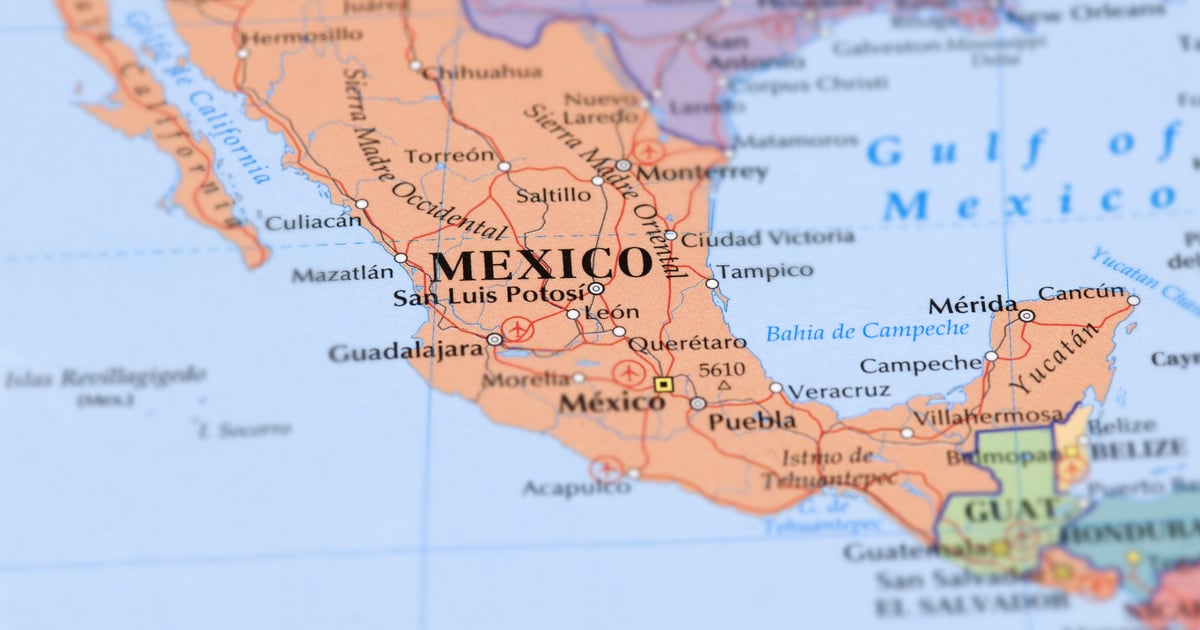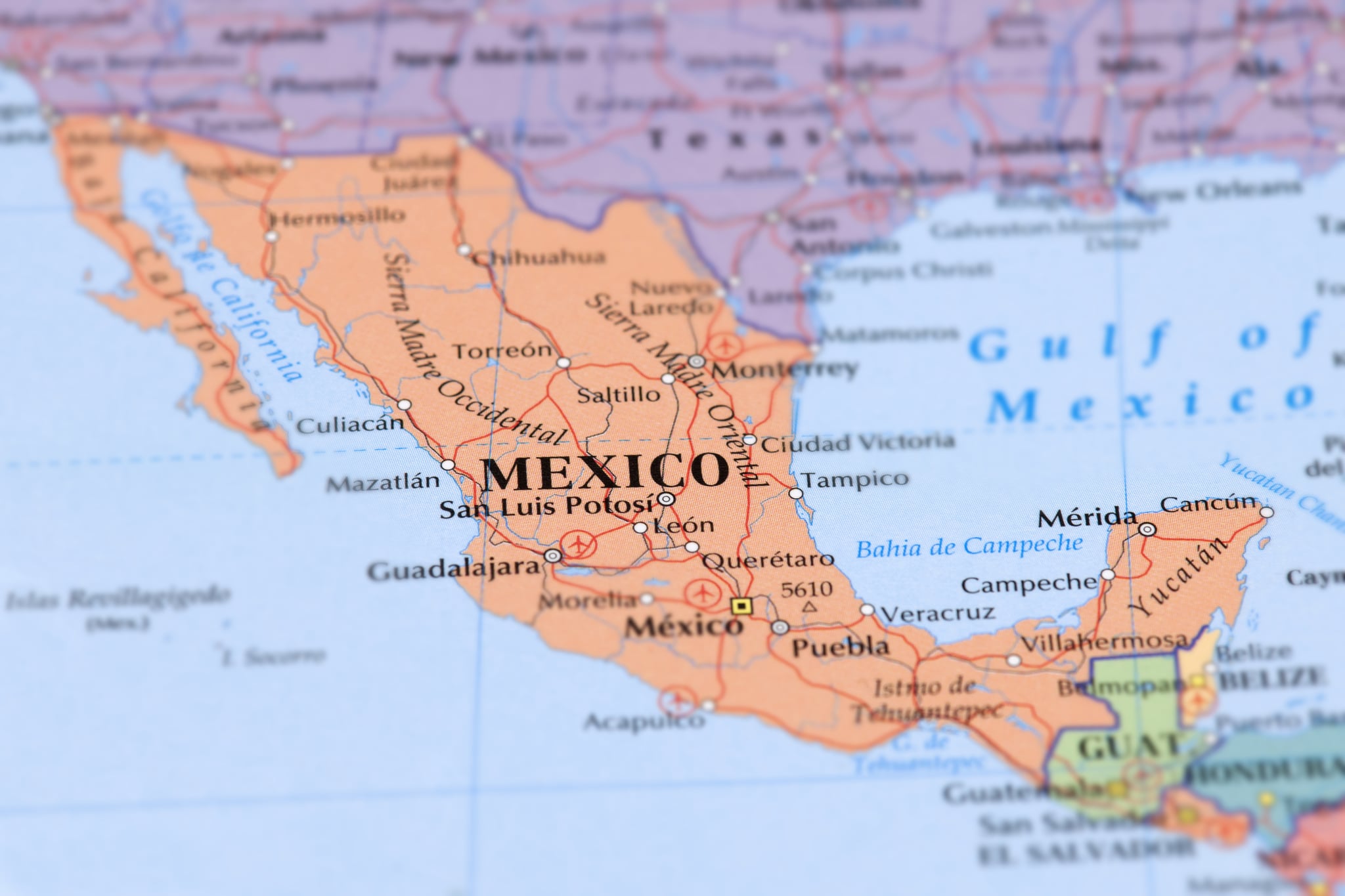Yes, Black Mexicans Exist: A Look at Mexico’s Afro-Diasporic History


The first enslaved Africans arrived with Hernan Cortez in 1519. Africans and their descendants have been in the Americas just as long as Europeans have. But regardless of their tenure, Afro-Mexicans are framed as people who were merely a blip on the path to European ideals and Mestizaje. The discourse surrounding Mexico’s history hardly addresses Afro-descendants. Instead, African chattel slavery and colonization by proxy are framed as events that “served their purpose” bringing “civilization” to a savage continent.
Today states like Guerrero, Veracruz, Oaxaca, Mexico City, and Jalisco all have significant Afro-descendant populations. People seem to forget that slavery was not the only pathway from Africa to North America, and that millions of Afro-descendents immigrated to Mexico for work. Even current asylum seekers from Angola, Ghana, and Senegal have all found residence inside Mexico’s borders while also being subjected to kidnapping, sex trafficking, organ trafficking, forced labor, and drug trafficking by organized crime.
Afro-descendants are an exceedingly vulnerable and marginalized group, responsible for past and continuous contributions to the rich tapestry that is Mexican society. So, why aren’t they recognized and why is the abuse they have and continue to endure still swept underneath the rug? There are several reasons why Afro-Mexicans have been re-contextualized, redefined, and erased from Mexican society.
The Problem with Mestizaje
“The collective imagination of Mexicans believes [Mexico] is white,” says Tanya E. Duarte who is an anti-racist activist and the founder and director of the “Afrodescendencia México” project.
“The collective imagination of Mexicans believes [Mexico] is white.”
This concerted effort by the Mexican government is intended to redefine the Mexican post-colonial and post-revolutionary collective identity. Despite the fact that slavery was abolished by Mexico’s second president, who was a Black man, or that Mexican staples like Tamarindo and Horchata are examples of African gastronomic influence, Mexico’s government clings to the idea that Mexican cultural identity is tied to Mestizo ethnicity (European and Native intermixing where they claimed the Afro gene is recessive).
Based on the casta system classifications created during colonization, the mestizo became the way to unite both the pre-colonial past and the post-colonial future. The most problematic cornerstone in the Mestizo ideology is “La Raza Cósmica” (The Cosmic Race) by Mexican philosopher, secretary of education, and 1929 presidential candidate José Vasconcelos.
“La Raza Cosmica” or the new Mestizo race would be the basis of a collective cultural identity where the African lineage would be cleansed/mixed out and the new race would create a utopia where race was transcended and a new era would be ushered in. This essentially implanted the idea that the Mestizo could get closer and closer to whiteness as long as they “better the race” by mixing with lighter-skinned people— it’s literally eugenics. But what happens if you are neither Indigenous nor white? And what happens if you don’t “look mestizo?”
“It is part of my daily life to be treated as a foreigner in my country, and also to confront the National Immigration Institute, since it stops me at national airports and highway checkpoints and they want to deport me to Cuba, Honduras, Brazil, Belize.”
“I live this firsthand,” Duarte tells POPSUGAR. “It is part of my daily life to be treated as a foreigner in my country, and also to confront the National Immigration Institute, since it stops me at national airports and highway checkpoints and they want to deport me to Cuba, Honduras, Brazil, Belize.”
Afro-Mexicans have to constantly prove they are citizens and are subject to arrest and deportation if they cannot prove their citizenship on the spot. It is a part of their daily reality that has been greatly impacted by the United States policies that bar refugees from entering the US with the stay-in-Mexico order.
To be Mexican and Black
“There is no dignified representation that allows Afro-Mexicans to reflect and describe themselves,” says Duarte. “The vast majority do not know that they are Afro, they do not know anything about its ancestry and African roots, no contribution is recognized in gastronomy, traditional medicine, music, arts, leaders of independence, intellectuals, artists and in the construction of the entire nation.”
Afro-Mexicans do not have any space to claim their Mexicanness because mestizaje has created such a narrow scope for who can fit in. Claiming blackness is rejecting sameness, but sameness is an illusion. To be Black and Mexican only became an option on the census in 2020 and even still the count is likely severely underrepresented because there is no education on the history of Afro-descendents in Mexico and Afro-Mexican communities are severely under-resourced. The challenges of structural racism prevents Afro-Mexicans from improving economically. Many of them are denied access to basic rights or must do jobs that are considered exclusive to their demographic group, such as farm work and animal care. Afro communities also lack hospitals, schools and decent roads. As it is, half of all Mexicans don’t have access to the internet and 33.5% of Afro-Mexicans don’t even have access to tap water.
How can people count themselves if they don’t know the census is happening and if they don’t know their own lineage? In 2015, the Census counted 1.3 million people who identified as Afro-descendents. In 2020 that number jumped to 2.5 million and it’s likely to keep growing if there is an effort to reach outlier and underserved Afro communities.
Article 2 of the Mexican constitution is what recognizes “multiculturalism” and the sovereignty of Indigenous groups. It also authorizes their presence in the political process as well as the preservation of their cultural identity. Obviously, it doesn’t mean that these provisions are honored or implicated, especially under current president Andres Manuel Lopez Obrador’s leadership, but at the very least Natives have been recognized as a part of Mexico’s history.
Afro-descendants were not mentioned in Title 2 and were therefore not recognized by Mexico’s government until the constitutional amendment made in 2019. Section C of Article 2 finally recognizes Afro-Mexican people and communities as part of the multicultural composition of the country in order to guarantee their autonomy, development, and inclusion aka “the third root.”
But although there have been changes for the better in theory, in practice Afro-Mexicans are still waiting. Duarte says that systemic change must start with education and international pressure.
“It is imperative to promote that the educational system values and restores the historical memory of the contribution of Afro-Mexicans to the construction of our country,” Duerte tells POPSUGAR. “It is urgent to review the texts and educational materials on the history of Afro-descendants in Mexico to make visible the contribution of Afro-descendants to the development of our great nation because we are still here and although invisible, we continue to contribute growth and culture.”
[ad_2]
Share this news on your Fb,Twitter and Whatsapp
Times News Network:Latest News Headlines
Times News Network||Health||New York||USA News||Technology||World News